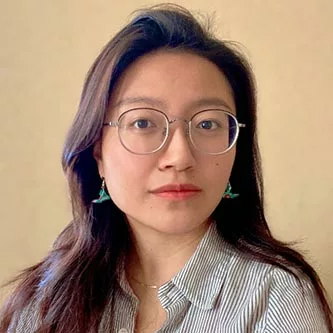Hailing from Shanghai – China’s coastal metropolis with a rich history of cultural exchanges, Dr. Jingyi Gu’s academic journey has taken her across the globe. Growing up as a digital native and studying in the field of Communication, she developed a deep interest in understanding today’s diverse digital cultures through transnational and interdisciplinary lenses. After completing her undergraduate studies, she moved to the United States and obtained her Ph.D. in Communications and Media with a minor in Gender and Women’s Studies at the University of Illinois Urbana-Champaign. Her research is dedicated to exploring the cultural aspects of information and communication technologies, seeking to uncover how these technologies shape and are shaped by social relations and power structures within local and global contexts.
Platform Economies and Digital Cultural Production
Gu’s interest in how digital platforms, as an emerging technology, also become major forms of economy and sites for cultural production, led to her book project Scalable Intimacy: Gender, Sexuality, and Labor in Chinese Live Streaming. This book explores how live streaming platforms mediate gender, sexual, and class identities as well as labor practices and social relationships, using methodologies such as digital ethnography, interview, and discourse analysis. In one chapter for example, she focuses on the technological conditions of gender and sexual dynamics in live streaming by examining how features such as “beauty filter” and “virtual gift” reinforce social norms and commodify user interactions to serve the platform’s business model. In another chapter, she highlights the gendered division of labor within this platform economy by considering the emotional and physical work of live streamers and the precarity of their profession. With this book, she conceptualizes “scalable intimacy” to draw attention to how intimate modes of communication and personal connections are mediated at scale within digital platforms while considering the cultural implications of this type of mediated experience. Building upon her published journal articles and the additional research conducted during her time as a Postdoctoral Fellow at the Center on Digital Culture and Society, Gu is working on completing the book manuscript, which promises to be the first book-length project studying Chinese live streaming as an exemplary case of both the cultures of platform economies with growing global significance and the intersection of technology and society in contemporary China.
Issues of Power and (In)Equalities within Global Digital Cultures
Beyond her current book project, her second research stream investigates how identities and communities of marginalized social groups are formed and contested in everyday practices of information and communication technologies within global digital cultures. In a paper published by the International Journal of Communication, she and her collaborator explored how Chinese and South Korean diaspora communities use region-specific apps to maintain cultural ties and construct transnational identities. This work provides crucial insights into how digital platforms serve as cultural infrastructures that both reflect and shape the experiences of racial and cultural minorities. Her other ongoing projects delve into the practices and politics of identities in transnational cultural encounters within digital spaces. One paper analyzes how Chinese women working for TikTok Live Shopping collectively navigate cultural differences and industry upheavals caused by geopolitical tensions. Another paper shows the discourses of nationalism, racism, and misogyny behind the viral “Chinese boss and their African female assistants”-themed video content on the Chinese Internet. With these studies, Gu addresses critical issues of inequalities and power in today’s global digital cultures and responds to calls for social change through public engagement. She is regularly interviewed by media outlets including The Wall Street Journal and MIT Tech Review.
Gu is also committed to developing the praxis of information and communication technologies that can contribute to a more just and equal digital future for all. Previously, she contributed to collaborative projects between computer science, social science, and local communities that prototyped diversified data collection by prioritizing the needs of underserved communities, thereby informing equity-focused civic decision-making. She also worked with researchers with diverse regional and disciplinary expertise in providing tech policy advisory to global governments, civil society organizations, and industry to address the impacts of ICT on vulnerable populations. As she joins the University of Hawai‘i, she hopes to build and develop collaborations with local communities and organizations to address issues of digital inequalities and advance ethical and equitable practices of technologies.
